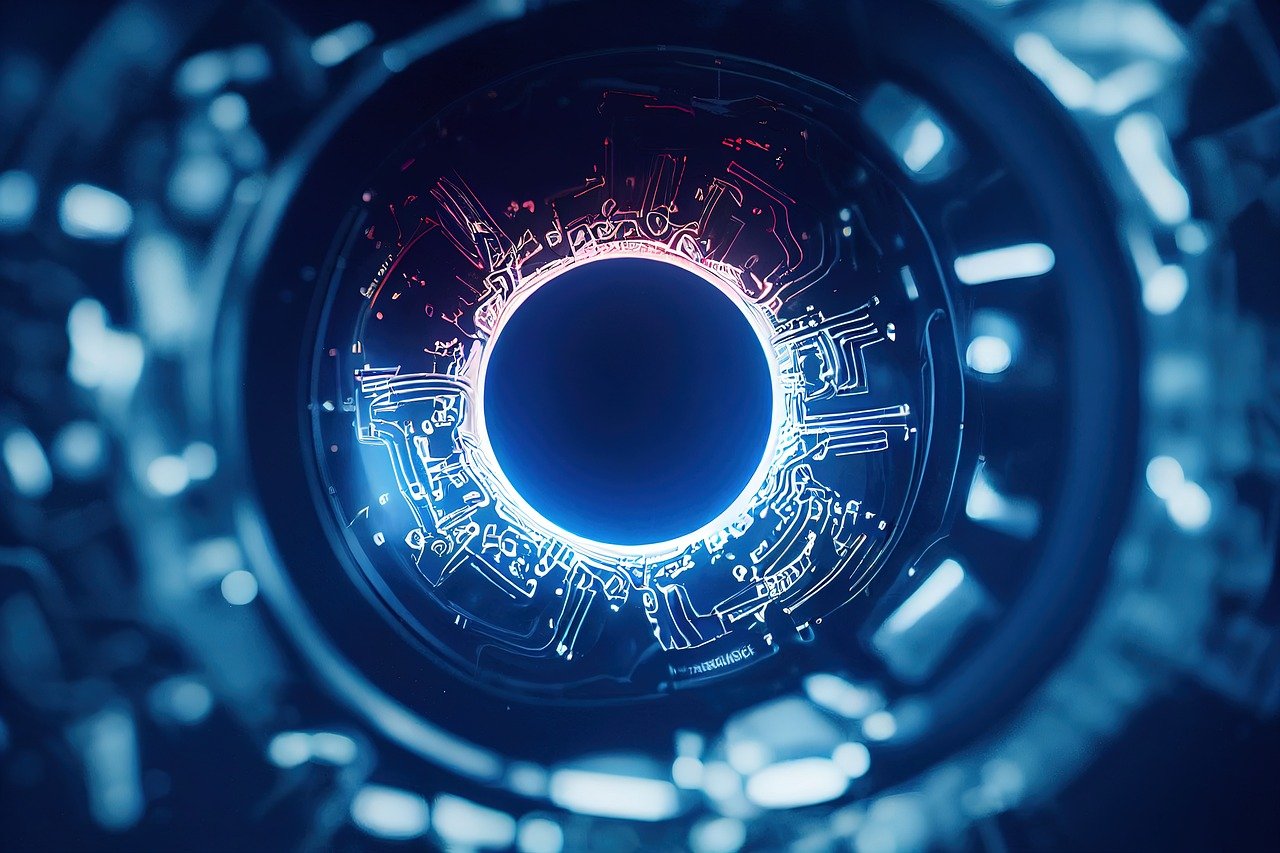AI in the News

Legal AI startup draws new $50 million Blackstone investment, opens law firm
NEW YORK, Nov 20 (Reuters) - Asset manager Blackstone (BX.N), opens new tab has invested $50 million in Norm Ai, a legal and compliance technology startup that also said on Thursday that it is launching an independent law firm that will offer “AI-native legal services.”
Lawyers at the new New York-based firm, Norm Law LLP, will use Norm Ai’s artificial intelligence technology to do legal work for Blackstone and other financial services clients, said Norm Ai founder and CEO John Nay.
The technology startup says it has created AI agents that help corporate in-house legal and compliance teams automate regulatory reviews.
Blackstone has backed the technology company in two prior funding rounds alongside other investors, including Coatue and Bain Capital. Norm Ai has raised more than $140 million since its 2023 launch.
The asset manager will work closely with the new law firm “to identify legal services that Blackstone procures that could benefit from an AI-native approach,” John Stecher, Blackstone’s chief technology officer, said in emailed comments.
Norm Law will be owned independently from Norm Ai, hewing to professional rules that generally bar non-lawyers from owning law firms or providing legal services. The firm will generate revenue from its own clients and pay the AI company for use of its technology, Nay said.

Now is the Artificial Intelligence Singularity
In 2015, Waitbutwhy.com had some articles and diagrams explaining how the artificial intelligence revolution of a technological singularity would play out. The diagram above shows how there would be a series of improvement rates that would get steeper and steeper and faster and faster.
Next Big Future

"Everyone will be a manager" - what the world of work will look like with AI agents
AI agents are reshaping roles, empowering employees, and redefining leadership in the workplace.
The ground in the world of work is shaking. Last week, Mark Zuckerberg, founder and CEO of Meta, said that he will replace junior programmers with artificial intelligence as early as this year. He made the remarks on an episode of The Joe Rogan Experience podcast. A few weeks earlier, on another podcast, 20VC with Harry Stebbings, Salesforce CEO Marc Benioff announced that the company would not hire new software engineers in 2025 due to the improvement in productivity thanks to the use of AI. He said that the company is now focusing on its flagship product in the field of artificial intelligence—Agentforce, a platform for creating artificial intelligence agents. Just to put it in perspective, a mid-level engineer at Meta in the U.S. earns an annual salary in the six figures, so the savings for the company could be significant, and the implications for the labor market are clear.
In October, Microsoft launched AI agents for the workplace, allowing employees and organizations to create customized agents that can perform tasks without writing code, using natural language. At the same time, Salesforce launched Agentforce, an AI agent designed for organizations, especially for sales, marketing, and commerce departments. Google also launched “Deep Research” a few weeks ago, which is essentially an AI agent that acts as a research assistant that investigates complex topics on the employee’s behalf and provides a detailed, easy-to-understand report. It creates a research plan that consists of several steps that can be edited or approved.

Just 2 hours is all it takes for AI agents to replicate your personality with 85% accuracy
Researchers from Google and Stanford have created accurate AI replicas of more than 1,000 people.
A two-hour conversation with an artificial intelligence (AI) model is all it takes to make an accurate replica of someone's personality, researchers have discovered.
In a new study published Nov. 15 to the preprint database arXiv, researchers from Google and Stanford University created "simulation agents" — essentially, AI replicas — of 1,052 individuals based on two-hour interviews with each participant. These interviews were used to train a generative AI model designed to mimic human behavior.
To evaluate the accuracy of the AI replicas, each participant completed two rounds of personality tests, social surveys and logic games, and were asked to repeat the process two weeks later. When the AI replicas underwent the same tests, they matched the responses of their human counterparts with 85% accuracy.

Google's quantum computer
Google's quantum computer performs calculation in 5 minutes that would take longer than the universe's existence for a supercomputer.

OpenAI will reportedly unleash next-gen Orion AI model
But not for a wide audience.
When you purchase through links on our site, we may earn an affiliate commission. Here’s how it works.
OpenAI is set to introduce Orion, its next-generation AI model, this December, reports The Verge, citing its sources with knowledge of the matter. However, initial access will be limited to key partner companies instead of a broad release through ChatGPT.com to the general public. The new model is expected to be a full-blown version rather than an enhanced or specialized version of an existing one.
Orion is viewed internally as a successor to GPT-4, though it is unclear whether its official name will be GPT-5 when released. An OpenAI executive has reportedly hinted that Orion could be up to 100 times more powerful than GPT-4, Open AI's flagship model. Unlike the recently released o1 model, designed for enhanced reasoning and aimed at applications like scientific problem-solving, data analysis, and structured knowledge tasks, Orion is geared toward broader AI capabilities for the general public.
For now, OpenAI plans to keep AI models with enhanced reasoning and AI models with broader capabilities separate, though eventually, they will merge as the company is working on artificial general intelligence (AGI). Yet, Orion's training involved synthetic data generated by o1, known internally as Strawberry. >

How AI Is Killing The Harvard MBA
A recent study revealed that applications to MBA programs increased 12 percent so far this year with finance concentrations continuing to be the most popular. To those MBA seekers - particularly for those from Harvard and other fine institutions seeking their fortunes on Wall Street - I say this: buyer beware. Your MBA might not help you get that lucrative job. Why? Because AI is already killing your prospects.
Wall Street has its allure. From Gordon Gekko and Jordan Belfort to Logan Roy and Bobby Axelrod, Hollywood and the media have glamorized the wealthy who have conquered the investment banking world. The potential for riches has attracted the very best and brightest MBA students from Harvard, Stanford and other elite universities. Starting salaries at these top firms are at $150,000. But the costs are also high. Up until now, if you're willing to give up your life, blood and soul to your firm, you would have a chance - a chance - of sharing in the riches.
But things have changed. AI is seeping in. It’s being used right now by those very same firms to kill off the vast majority of people they employ, which include many of those hopeful Harvard MBAs. >

Artificial intelligence will lead to a net increase in jobs, this expert claims
Workers need to get on board with artificial intelligence
In the two years that have followed the first public preview launch of ChatGPT, deployment of AI tools has varied from all-in approaches to more cautious investments, but the widespread concern that the technology could replace human workers has remained consistent throughout.
As the technology continues to evolve and businesses adapt accordingly, AI’s role in the workplace is slowly becoming more defined, and you might not have to worry so much about the security of your job.
AI as a creative partner
Several keynotes and panel discussions at this year’s World Congress on Innovation and Technology (WCIT) in Yerevan, Armenia revealed AI’s role as one of a coworker.
A key message conveyed during the event emphasized AI should be viewed as a starting point and a source of inspiration, providing the ideas that humans can refine and improve. The true value of human workers lies in their ability to add emotion, engagement and value-based decision-making, and allowing AI to handle more basic elements of your workload could allow you to increase how much you’re worth to your employer.
Considering AI as a collaborator rather than a competitor is becoming more popular in various industries, but particularly among creatives where the technology can process vast amounts of data, identify patterns and generate prototypes that can be distilled by actual human workers.
The balance between human and machine is especially important in fields where human emotions play a critical role. Whether it’s in marketing, customer service or leadership, the ability to connect with others on an emotional level is a uniquely human trait that tech giants will never truly replicate, as much as they try – and try, they do.
Although countless studies have already revealed that businesses lack the right data foundation to fully benefit from artificial intelligence, it does promise to assist with decision-making at the management level. >

Startups should consider hiring fractional AI officers
Startups should consider hiring fractional AI officers
The AI skills gap is real. A recent study from Randstad, the recruitment company, found that job posts referencing generative AI skills have risen by 2,000% since March. It’s the third most sought-after skill set and one of the shortest in supply.
The logical step for enterprise companies is to appoint a chief AI officer (CAIO) to kickstart their efforts. Earlier this year, Dylan Fox penned an opinion piece arguing that every Fortune 500 business needs a CAIO.
“Companies that do not integrate AI into their product, operations, and business strategy will struggle to remain competitive — and fall behind those that do,” Fox wrote.
It’s a compelling argument that makes sense at the enterprise level. But what about everyone else? Startups and scale-ups need to integrate AI just as badly — especially if they’re trying to fundraise in this AI moment. However, they often don’t have the resources or the organizational structure to support a senior executive focused exclusively on AI.
This is where a fractional AI officer comes in. Fractional leadership is a recent workforce trend: seasoned executives with subject matter expertise working across two or more clients simultaneously, lending their talents to rapidly growing companies that need their specific skill set but can’t afford it full-time.
Here’s the kicker: Having a fractional AI officer is superior to hiring full-time in one crucial respect. AI — especially generative AI — is such a new technology that breadth of experience across multiple companies gives fractional executives an edge over their full-time counterparts.
The three stages of AI adoption
While the promise of generative AI is significant, it’s hard for companies to establish a reliable ROI metric early in the adoption curve, especially in an environment where companies are expected to be more conservative in spending.

'Mika' becomes world's first AI human-like robot CEO
'Mika' becomes world's first AI human-like robot CEO
Mika is the 'official face' of Dictador, a major rum and spirits producer
Mika is a research project between Hanson Robotics and Polish rum company Dictador, who customized the CEO to represent the company and its unique values.
Dictador recently announced their new hire, Mika, the world's first ever artificial intelligence-powered robot CEO. Mika is the 'official face' of Dictador, a major rum and spirits producer. (Dictador / Fox News)
In a Dictador company video, Mika said that "with advanced artificial intelligence and machine learning algorithms, I can swiftly and accurately make data driven."
However, FOX Business reporter Lauren Simonetti noted that there is a "significant delay" in the time it takes Mika to process and respond to your question.
AI TOOLS STREAMLINING ACCOUNTING WORKFLOWS AND OPENING CAPACITY FOR INNOVATION, EXPERT SAYS
Hanson Robotics CEO David Hanson, who played a key role in employing Mika at Dictador, emphasized the importance of "humanizing" artificial intelligence.
"I feel very strongly that we need to teach A.I. to care about people for A.I. to be really safe, to be really, really good. I think humanizing that is a very important direction," Hanson explained on "Mornings with Maria" earlier in the week.

With 1 Sentence, Microsoft CEO Satya Nadella Just Taught a Master Class in Recognizing Opportunity | Inc.com
BY MINDA ZETLIN, AUTHOR OF 'CAREER SELF-CARE: FIND YOUR HAPPINESS, SUCCESS, AND FULFILLMENT AT WORK'@MINDAZETLIN
Microsoft released its quarterly earnings this week, and the news was very, very good. Revenue was $56.5 billion, up 13 percent from this time last year, and profit was $22.3 billion, up 27 percent from last year. Just a few days earlier, ahead of releasing these figures, CEO Satya Nadella posted his annual letter to shareholders on LinkedIn, which Microsoft owns.
The letter is almost entirely about artificial intelligence, as you might expect if you've been keeping track of Microsoft or its CEO. It's no secret that the company is making a huge bet on A.I. And, about 10 paragraphs in, within his list of three convictions he says will help keep Microsoft successful, is a cogent explanation of why:
Because we know that maximum enterprise value gets created during platform shifts like this one, we will invest to accelerate our lead in A.I. by infusing this technology across every layer of the tech stack.
Maximum enterprise value gets created during platform shifts like this one. Within the letter--which goes on for a hefty 4,506 words--you could easily fail to notice this comment. And yet it can tell you everything you need to know about how to look at opportunity and at risk.
www.inc.com

Netanyahu warns of potential 'eruption of AI-driven wars' that could lead to 'unimaginable' consequences
Netanyahu warns of potential 'eruption of AI-driven wars' that could lead to 'unimaginable' consequences
'The AI revolution is progressing at lightning speed,' Netanyahu told the U
Israel Prime Minister Benjamin Netanyahu warned the world is on the cusp of an artificial intelligence revolution that could launch nations into prosperous times or lead to all-out destruction fueled by devastating high-tech wars.
"The AI revolution is progressing at lightning speed," Netanyahu said during his U.N. General Assembly speech last week. "It took centuries for humanity to adapt to the agricultural revolution. It took decades to adapt to the industrial revolution. We may have but a few years to adapt to the AI revolution."
Talk of artificial intelligence at the U.N. was hardly common just a few years ago. But after the release of ChatGPT's wildly popular chatbot that can mimic human conversation and other AI-powered platforms, AI has become a hot topic among world leaders.
Netanyahu's speech focused on building a peaceful "new Middle East," and cited relations between Israel and Saudi Arabia as evidence of this intention. He devoted the latter half of his speech to the future of AI and the "perils" the technology poses.

Newspaper runs robot-written op-ed opposing AI in journalism
Newspaper runs robot-written op-ed opposing AI in journalism
The St. Louis Post-Dispatch used Microsoft's Bing Chat AI program to write the op-ed
A St. Louis newspaper decided to take on the artificial intelligence debate by allowing a robot to pen an op-ed arguing against the use of AI in journalism.
The article, featured in the St. Louis Post-Dispatch, was written entirely by Microsoft's Bing Chat AI program, according to a disclaimer in the article.
The bot was instructed to "write a newspaper editorial arguing that artificial intelligence should not be used in journalism."
The paper then let the AI platform take over from there. And the bot argued that while AI "may have some benefits," it "also poses serious threats to the quality, integrity, and ethics of journalism."

Amazon to Invest Up to $4 Billion in AI Startup Anthropic
AWS CEO: Generative AI Will Be Explosive Source of Growth
Amazon to Invest Up to $4 Billion in AI Startup Anthropic
Tieup could help Amazon become key player in generative AI
Anthropic gets funds for pricey process of training AI models
Amazon.com Inc. will invest as much as $4 billion in Anthropic, bagging a crucial partner in its effort to become a major player in generative artificial intelligence and offering a vote of confidence in the hot startup.
As part of the deal, Anthropic will move most of its software to Amazon Web Services data centers, and use the cloud computing company’s homegrown chips to train the models it uses to power chatbots and other applications. Besides getting access to Amazon’s computing power, Anthropic will gain a financial infusion that will help it pay the huge costs required to train and run massive AI models.

Cowboys roll out AI-powered version of Jerry Jones inside AT&T Stadium to take on fan questions
Cowboys roll out AI-powered version of Jerry Jones inside AT&T Stadium to take on fan questions
Jones has owned Dallas Cowboys since 1989
Dallas Cowboys owner Jerry Jones is one of the most recognizable figures in the entire NFL.
Football fans would probably jump at the opportunity to ask Jones, who also serves as the team's general manager, questions if they ever had the chance to meet him. But now, artificial intelligence gives anyone who visits AT&T Stadium the chance to ask Jones questions.
The Cowboys home stadium now features "Meet Jerry Jones — An Interactive Experience," which appears to be an AI-powered hologram of the billionaire. Time will be allotted for visitors who sign up for the "owner's experience tour" or those who opt for private group tours to interact with the technology.

New AI-generated COVID drug enters Phase I clinical trials: ‘Effective against all variants’
Once approved, the oral medication would provide another antiviral option: ‘A promising alternative’
Artificial intelligence is increasingly moving into the health care arena and helping to streamline medical processes — including the creation of new drugs.
Insilico Medicine, an AI-driven biotech company based in Hong Kong and in New York City, recently announced that its new AI-designed drug for COVID-19 has entered Phase I clinical trials.
This oral drug is a treatment, not a vaccine. If approved, it would become an alternative to the current COVID antivirals including Paxlovid and Lagevrio, noted Alex Zhavoronkov, PhD, founder and CEO of Insilico Medicine.
"Generative AI is transforming every area of human development," said Zhavoronkov in a press release announcing the new discovery.
"We’re extremely happy to announce that our second small molecule therapeutic — generated using generative AI — is now entering human clinical trials."

ZDNet: ChatGPT answers more than half of software engineering questions incorrectly.
ZDNet: ChatGPT answers more than half of software engineering questions incorrectly.
ChatGPT's ability to provide conversational answers to any question at any time makes the chatbot a handy resource for your information needs. Despite the convenience, a new study finds that you may not want to use ChatGPT for software engineering prompts.
Before the rise of AI chatbots, Stack Overflow was the go-to resource for programmers who needed advice for their projects, with a question-and-answer model similar to ChatGPT's.
Also: How to block OpenAI's new AI-training web crawler from ingesting your data
However, with Stack Overflow, you have to wait for someone to answer your question while with ChatGPT, you don't.
AI Boom Fuels 487% Stock Surge for Little-Known Hardware Firm
AI Boom Fuels 487% Stock Surge for Little-Known Hardware Firm
Isu Petasys supplies tech giants such as Nvidia with circuits
Patriarch Kim Sang-Beom and family see value of stake soar
As investor interest in artificial intelligence sends shares of technology giants soaring, a little-known circuit board maker in South Korea is cashing in big.
Isu Petasys Co., which counts Alphabet Inc., Nvidia Corp. and Microsoft Corp. as customers of its multilayered boards, has seen its share price surge 487% this year – among the biggest gainers on South Korea’s benchmark stock index. The company’s recent boom has also helped boost the value of stakes held by Chairman Kim Sang-Beom and his family to more than $800 million as of August 3.

Meet Elon Musk's new SpaceX employee, 14-year-old Kairan Quazi
Meet Elon Musk's new SpaceX employee, 14-year-old Kairan Quazi
SpaceX software engineer Kairan Quazi tells 'The Claman Countdown' how he landed a job working for Elon Musk.
Elon Musk said Wednesday that he believes "digital superintelligence" would exist within the next five or six years.
"I would be surprised if there is not digital superintelligence in roughly the five- or six-year timeframe," the billionaire said in a conversation on Twitter Spaces with Reps. Mike Gallagher, R-Wis., and Ro Khanna, D-Calif.
"If this was a Netflix series or something, I'd say that the season finale would be a showdown between the West and China and that the series finale will be AGI," Musk continued.
Khanna remarked on how fast that timeline was, saying he had not realized it would happen that quickly.

Herd mentality is alive and well as VCs chase AI craze
Herd mentality is alive and well as VCs chase AI craze
Last month, a story popped up on my news aggregator about a four-week-old startup yet to develop its first product that has raised over $100 million in venture funding. At first I dismissed the story thinking that it was old news.
But upon closer inspection, I was surprised to see that Mistral AI's funding announcement was not from June 2021, when markets were hot, but from midyear 2023.
AI startups have seemingly defied the overall decline in VC funding of the past 18 months, collectively raising $15.5 billion this year, according to PitchBook data. Even when you exclude OpenAI's $10 billion round, the sector's VC funding in 2023 has surpassed last year's total and is well over halfway to 2021's peak of $9.1 billion. On top of that, deal pace has remained steady and median post-money valuation is up 109.8% from last year.

